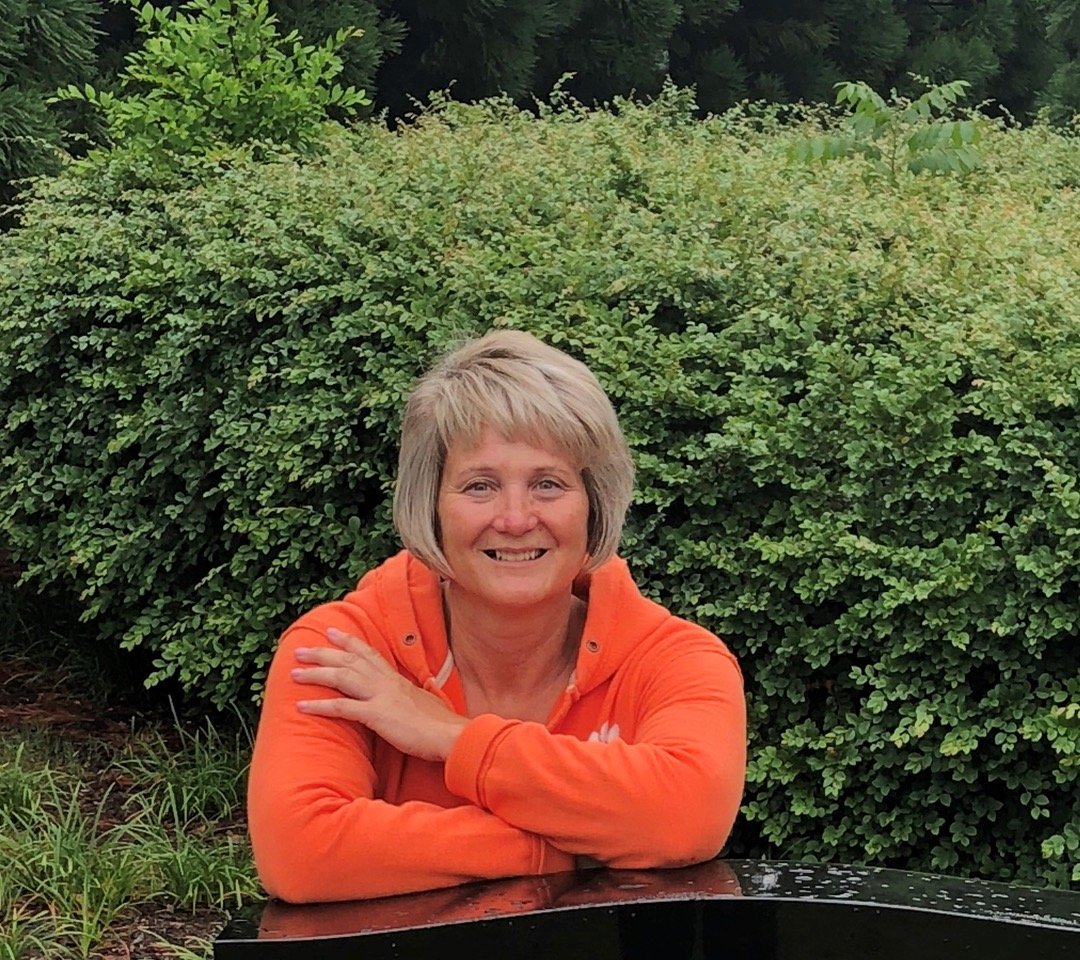The Future of Sustainable Farming: Amy Yoder applies her passion for sustainable agriculture to drive change in the industry
By Amy Wu
A sixth-generation farmer, Amy Yoder has been in the agricultural industry for more than 20 years. She has held key roles with Arysta LifeScience, Monsanto, and Spectrum Brands and served on the boards of CropLife America and RISE (Responsible Industry Sound Environment).
Since joining Anuvia in 2015 as CEO, Yoder has helped develop, innovate and market Anuvia’s alternative to conventional fertilizer that both delivers profitability and production efficiency to farmers. She has been instrumental in making Anuvia an innovative leader in the agricultural industry by guiding the development of a solution that fights climate change and helps sustainably feed a growing population. Yoder has driven the advancement of Anuvia’s products throughout the agriculture-focused regions across the U.S., achieving rapid sales growth that put Anuvia’s products on over one million acres of land nationally.
In March of 2022, Yoder was recognized as one of Orlando Business Journal’s “Women Who Mean Business.” The honor recognizes leaders who have “gone above and beyond in their respective roles, driving business success, workforce development, and community advancement.
Q: How did you get into agriculture?
A: Growing up on a sixth-generation farm shaped my love and passion for agriculture. I would help with farm chores and by doing so, I truly understood the importance of agriculture, soil health, and preserving the land for future generations, as the farm is still in our family today. Soil needs to be passed on in a way that’s still productive. If the soil’s productivity is depleted, then there’s nothing left for future generations. My first job out of school was with DuPont Chemicals and I actually had the experience of working with the farmers to find pieces of land that had the problems we were trying to solve, which furthered my commitment to always seeking to improve crop production and tools that help farmers.
Q: Can you explain the journey that led you to Anuvia?
A: Throughout my whole career, I've either started something new or I've fixed an existing problem. While I was at Arysta, we were looking for products that had a biological base that could really make an impact on broad-scale agriculture, and to me, it had a really important piece in terms of sustainability. When I look at farming and I think about how I was raised, we were always thinking about how we could be more sustainable and profitable at the same time. I wanted to see if I could do a startup. I've never done one, not from the ground up and I wanted to see if I could, and I was still young enough to be able to try.
I was introduced to the Anuvia technology through TPG. They had just acquired the technology, and when I came on board, it was still in a lab and it still operated in a lab developmental setting. I think I was the fourth or fifth employee, with the first four or five being founders, and I was one of the first outside employees. At this time, Anuvia’s technology was focused only on turf, meaning golf courses, municipalities and sports fields. All of which make up a small fraction of the addressable acreage worldwide. As a farmer myself, I understood how the technology could fit within a standard agricultural program and benefit all farmers and the commercial agriculture industry, where its economic and sustainable benefits would have the greatest, most immediate impact.
Q: How did you choose this area of agriculture?
A: It's probably more about my general feeling on how technology evolved. What you really want to understand is that land is a finite resource and this technology has the ability to protect soil and the land. I really thought about where I came from and the kind of legacy that I would like to leave, and I wanted to be more than just a business person. I really would like to leave a legacy for the next generation in terms of preserving our planet and ensuring food security for future generations.
Q: Can you explain the problem your product is addressing in agriculture?
A: When farmers use fertilizer today, roughly 50% is lost in two ways: volatilization and leaching. As traditional nitrogen fertilizer is applied, it begins to break down releasing nitrous oxide, which is a greenhouse gas, or it leaches and moves through the soil and can get into the water system. Both of those have negative impacts on the environment. The goal is to be able to have nutrition that basically can stay in the soil zone so that the crop can utilize it. Our product helps those nutrients stay in that zone for a longer period of time, so the crop can utilize more of that nutrition.
Q: Can you give some idea of the type of farmer you are targeting?
A: While we focus on commercial agriculture, we don't really target a type of farmer in terms of size. What we're targeting more is the application. We sell two products; we sell one that's more of a nitrogen, phosphorus, sulfur, and then we sell a nitrogen sulfur product. Both of those are used in all kinds of row crops, such as corn, soybeans, cotton, and wheat so we target farmers that grow those crops.
Q: What are some of the key initiatives that you're working on this year?
A: We're going to launch a biological this fall on our granular, which will replace 10 units of phosphorus, utilizing the phosphorus that gets put on the soil and making it more efficient. We are taking what's occurring in nature and making it more available for farmers to use on large scale crop production. Biologicals are essential in restoring soil health and reducing chemical inputs globally.
Q: What is your outlook on the agtech sector?
A: I think agtech right now is at a tipping point where it's really starting to move forward with tremendous momentum. The first wave of Agtech often required farmers to change their process. Today, people are now starting to think about how to develop these innovations in a way that makes it easy for farmers to use within the current farming system – this will drive faster adoption of technology.
Q: Beyond your product and technology, what are some of the other areas within agtech that you think are cutting edge?
A: I'm going to say the really evolved GPS technology. I also find it interesting when you get into the prescription technology that allows for monitoring the soil and being able to put the exact right rate of fertilizer needed within a very small segment right around the crop. I can see a lot of utilization for that, not only to make sure you're only fertilizing the right area because soil varies over our entire field, but I think it becomes important to maximize in terms of crop yield but also minimize waste. I love the biologicals that are coming out. Some of the ones that we're working on have been able to take what's occurring naturally, really identify and isolate it.
Q: Did you face any challenges with being a woman leader at the table, especially in agribusiness?
A: I remember talking to my husband, about my very first leadership role, and I said, "All right, so I'm leading this company and I am easily 20 years younger than everybody there." I was the only woman, other than a couple of accounts payable clerks. It was a really good experience. As a woman, in order to earn credibility and respect, you always had to know exactly what you were doing, and you had to be right. At the time that I started in the industry, over 20 years ago, you couldn’t really make a mistake as a woman. I worked hard to make sure my decisions were good, that I was a good communicator, and that I earned the respect of the people around me. Thankfully I don’t see this in the industry too much anymore and agriculture is a fabulous industry for women.
Q: What have you and your company been doing to cultivate the next generation of women who could potentially either be leaders or sit on the boards?
A: I look through our ranks and how we're developing all people including women. Anuvia is actively recruiting recent graduates from college. We look at universities that have an ag entrepreneurship type of a program, and that's where we've been pulling from in order to get a strong cross-functional group. I think that the younger group brings a different set of ideals and it would be foolish not to listen to them. I do think that there are challenges in agriculture with women and as I stated earlier, I think it's more in my generation and probably a generation down. I see a lot of really exciting younger people in the industry that I think will be able to make an impact. We should do everything we can to really be able to support that younger generation and give them the experiences so they can drive us forward in the future.
Amy Wu is an award-winning journalist with a specialty in writing about food, agriculture and innovation. She is the founder of From Farms to Incubators a media and events initiative that using storytelling to champion women in the food systems. Amy is moderating a panel at the 2022 Indoor Agtech Innovation Summit.

